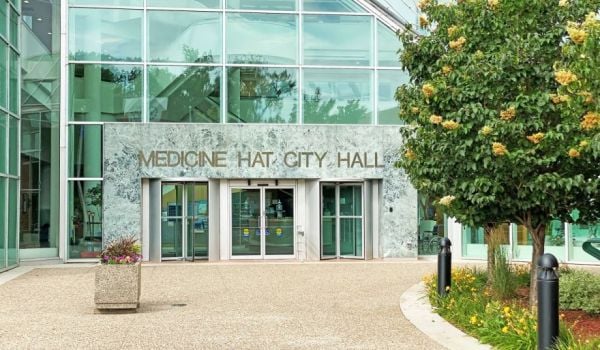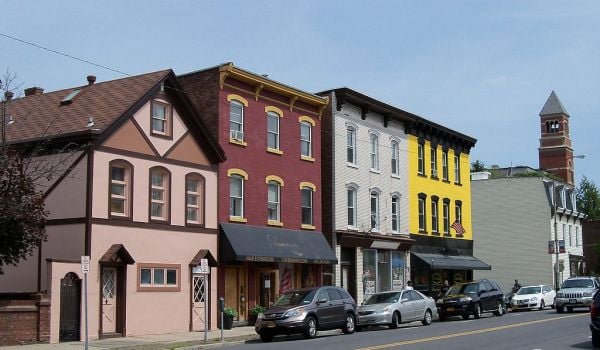Repurposing Hotels Helped Contain COVID-19 Spread, Study Shows
A study conducted by researchers at the University of Washington showed that King County’s efforts early in the pandemic to turn hotel rooms into housing for people experiencing homelessness helped limit the spread of COVID-19 — confirming what many advocates have already known to be true, according to a UW News report. The county, which is home to Seattle, began leasing hotel rooms in April, and over the last six months they have served as temporary shelter for more than 800 people, according to the report.
Researchers discovered fewer outbreaks of COVID-19 among people who were housed in hotel rooms and those who stayed in traditional shelters, the report says. Importantly, unsheltered people who got access to hotel rooms “reported improved physical and mental health, and the ability to focus on long-term goals such as obtaining housing, employment and education, rather than simply focusing on day-to-day survival,” the report says.
“This study conclusively demonstrates the positive impacts of providing our most vulnerable neighbors a place to call their own and 24/7 support, and it underscores the urgency in expanding these efforts in the coming months,” said King County Executive Dow Constantine, according to the report.
King County has leased hotel rooms through January of 2021, according to the report, and is “evaluating how to continue and expand the program during and beyond the pandemic.” The county is also considering a plan to purchase hotels and nursing homes to create permanent emergency-housing facilities, the report says — an echo of a similar program in California. The results of the UW study are preliminary, and a complete report is going to be published later this fall, the report says.
New Effort to Raise $1 Billion for Affordable Housing Nationwide
A group of nonprofit organizations and financial institutions has launched a campaign to raise $1 billion in an effort to help provide affordable housing for “low-income families and communities of color,” according to a press release. The venture is a partnership between the Low Income Investment Fund (LIIF), Stewards of Affordable Housing for the Future (SAHF), “a nonprofit collaborative of thirteen affordable housing providers who own nearly 150,000 rental homes, and National Affordable Housing Trust (NAHT), a nonprofit low-income housing tax credit syndicator with over $1 billion in assets under management,” according to the release. The group plans to raise $1 billion over five years to build and preserve 10,000 homes across the U.S. Part of the goal is to help prevent a repeat of the last recession, when private equity firms bought foreclosed homes at low prices and “converted them out of affordability,” the release says.
In a detailed report on the plan, Kriston Capps at Bloomberg Citylab notes that 10,000 homes is “a penny in the well” compared to the country’s shortage of affordable homes for low-income people. But the partnership is designed to provide financing advantages to nonprofit developers, who often have to compile funding from various sources, including complicated federal low-income housing tax credits, so that they can compete with private capital to acquire properties at risk of becoming unaffordable, the Citylab report says.
“We will proactively equip affordable housing developers with financing solutions that will allow them to be competitive,” said Lori Little, President & CEO of NAHT, according to the press release. “We will challenge the status quo to ensure an equitable recovery.”
D.C. Eviction Investigation Shows Instant Results
Tenants facing evictions in Washington, D.C., may have been routinely deprived of proper notification about their eviction hearings, according to an investigative report from DCist published earlier this week. The report explored the process by which private process servers deliver court summonses to tenants facing evictions, and found that the practices were inadequate in many cases. Two process servers in particular “almost never managed to find the tenants they were hired to serve,” the report says. The practice is important because if tenants don’t know whether or when to show up for court, they end up forfeiting many of the rights that they do have, which in D.C. are relatively substantial, the report notes.
“A nine-month investigation—which included observing week after week of eviction proceedings in Superior Court, poring through more than 13,000 pages of court records, conducting nearly 60 interviews, and reviewing hours of security camera footage—turned up more than 600 cases in just two months where two process servers filed affidavits containing discrepancies that, if brought to a judge’s attention, would likely result in the eviction case being dismissed,” the report says.
In response to the investigation, the D.C. Council unanimously adopted a new rule that “requires landlords to provide photographic evidence that tenants have been given notice of eviction cases against them,” as part of a package of measures that were already up for a vote, according to a follow-up report from DCist. The amended vote came less than one full day after the original investigation was published.
This article is part of Backyard, a newsletter exploring scalable solutions to make housing fairer, more affordable and more environmentally sustainable. Subscribe to our weekly Backyard newsletter.

Jared Brey is Next City's housing correspondent, based in Philadelphia. He is a former staff writer at Philadelphia magazine and PlanPhilly, and his work has appeared in Columbia Journalism Review, Landscape Architecture Magazine, U.S. News & World Report, Philadelphia Weekly, and other publications.
Follow Jared .(JavaScript must be enabled to view this email address)


















